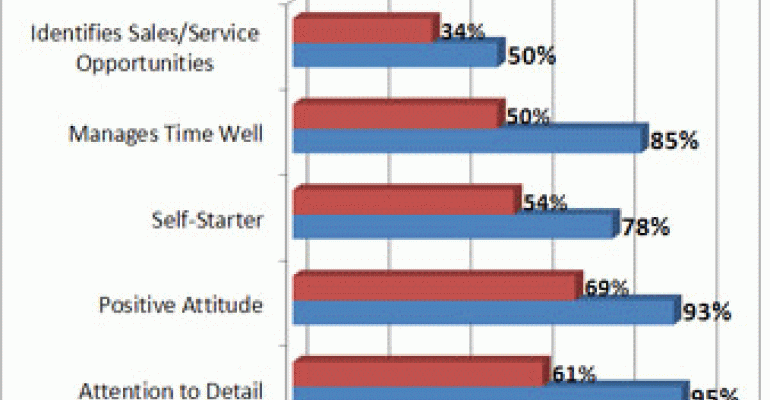
Philadelphia: “Getting the proper support has always been an issue at my firm,” groused Harvey during the Q&A session following my presentation. Then he asked a question, impossible to answer in a quick sound bite: “How do elite advisors
develop such excellence in their support personnel?”
After a brief chuckle, I responded, “Very carefully.” I could tell Harvey had hit on a nerve for many of the advisors in the audience, so rather than leaving him with a
flippant response, I shared a handful of data points from our soon-to-be-released study on support personnel. Let me give a preview of what our study says support excellence is all about.
All advisors recognize that the financial crisis has made earning the
loyalty of today’s affluent investor one of the most serious challenges they face. Today’s affluent investors are not blaming their financial advisor personally for this
“lost decade;” they are holding them accountable for the quality of personal service they have received. Elite advisors recognize that it’s impossible to attract, service,
and develop loyal, affluent clients without excellent support. Which is why they invest the time, energy, and resources into developing best-in-class support personnel.
In an ongoing effort to remain abreast of financial advisors’ concerns as they relate to working with affluent investors, the Oechsli Institute conducted a study last quarter on advisors and support personnel. The objective of this study was to determine the specific criteria that make up the profile of excellent support personnel.
We studied key areas as they relate to the support personnel role and the working relationship with their financial advisor. What we discovered were a number of distinct discrepancies. For instance:
• High-level professionalism regarding their support personnel was considered important by advisors at a 92 percent rating (we wonder about the other 8 percent,) and 86 percent of support personnel rated their performance in this area as excellent. However, only 68 percent of financial advisors rated their assistant as excellent in this category.
• Attention to detail was rated at 95 percent in terms of importance by advisors, while only 74 percent of their support personal rated their performance in this area as excellent. Advisors took an even dimmer view of their assistants’ attention to detail as they rated only 61 percent excelling in this critical category.
• Positive mental attitude was rated by advisors at 93 percent in level of importance, while 82 percent of support personnel considered their attitude to be excellent. Whereas only 69 percent of advisors viewed their assistants as having a stellar attitude.
• Training is known to be essential to both advisors and support personnel;
however, only 22 percent of personnel assistants were trained by their
financial advisor and 40 percent considered their training as ad-hoc, at best.
The above is only a small sampling of what we discovered. In this report we have highlighted all of the areas that were considered of critical importance within the support personnel role, along with the perceptions of both financial advisors and support personnel regarding performance of support personnel.
It is interesting to see the gaps between what advisors rate as important regarding the assistant’s role and the actual performance of their assistant. All have significant gaps, but some are more alarming than others. For instance, rating attention to detail as 95 percent in importance makes sense, as one would expect this to be a critical aspect of an assistant’s role. Yet the rating of their personal assistants’ performance at 61 percent in this critical area sends up a warning signal.
Studying these gaps raised a series of questions advisors should answer: Is there clarity in roles and responsibilities? Do assistants know what is expected of them? Are they being properly trained to perform their role? Is communication between advisor and assistant clear and ongoing? Are the assistants being monitored and reviewed properly?
In response to Harvey’s question, the obvious answer for elite advisors is, “Yes.” However, the response for many advisors to these questions is, “No.”
On the subject of training, our research tells us that the training of today’s personal administrative assistants is all over the board. Forty percent have been trained ad-hoc, which we consider to be no training. Thirty-two percent have been trained in a structured firm-based curriculum but are not completely trained until they join the 22 percent who have been personally trained by their advisor. Six percent have been mentored. The elite advisors never fully delegate this training; they’re personally involved. Creating support excellence is work.
If you would like a FREE copy of our seven-page PDF, 12 Ways to Strengthen Affluent Loyalty, visit our download Center. Enjoy!
Also, if you haven’t already - join The Oechsli Institute’s Group on LinkedIn!
Once again, we want to thank all of you who have e-mailed comments and questions to us. We will continue to do our best to answer each one.
If you have any topic suggestions or special requests, please contact Rich Santos, publisher of Registered Rep. and Trusts & Estates magazines, at [email protected].

